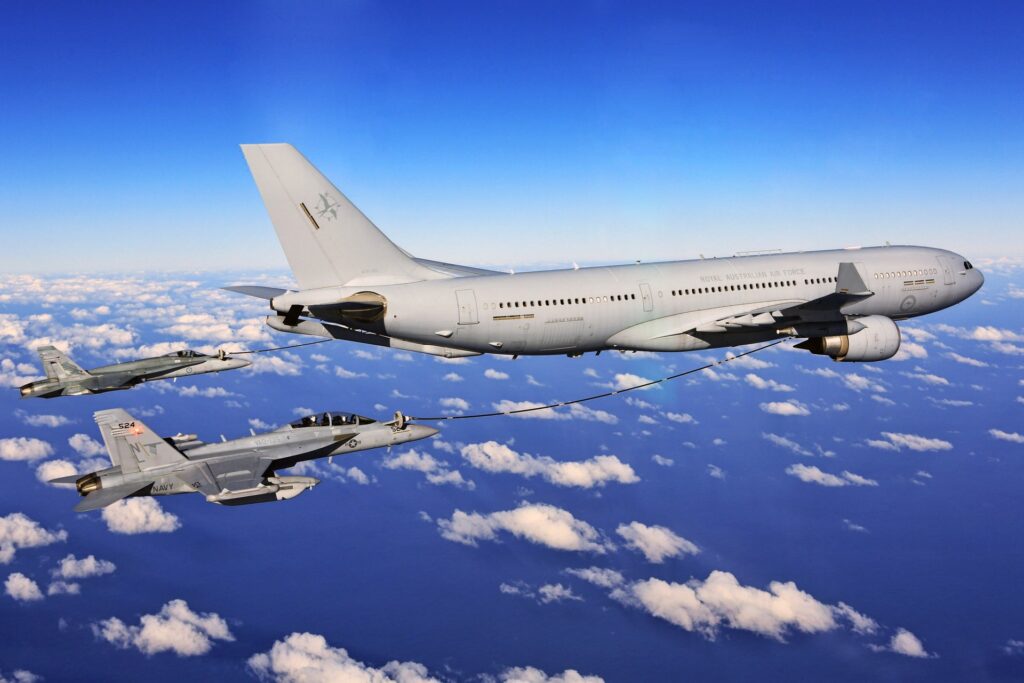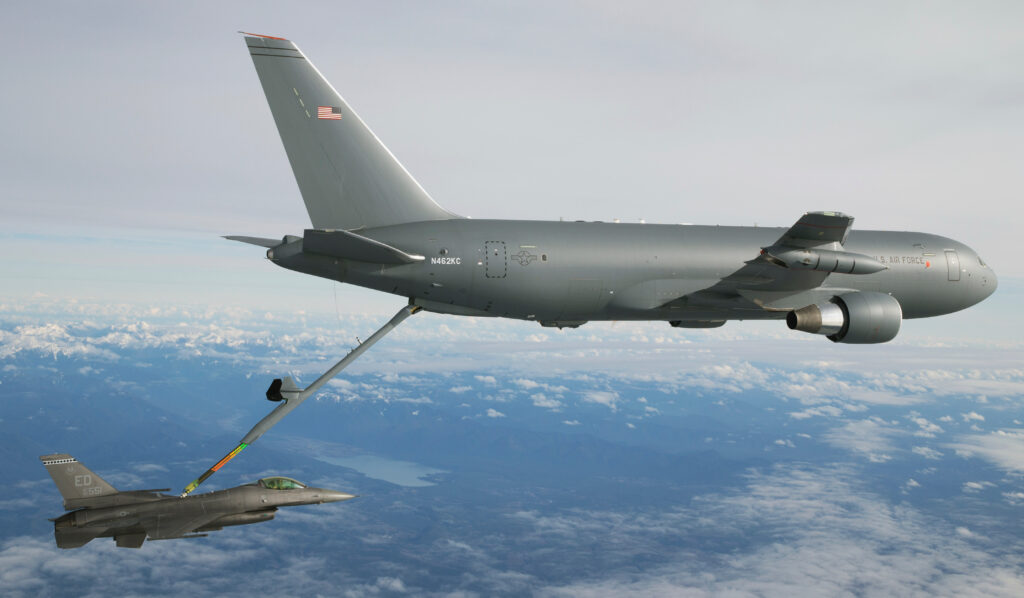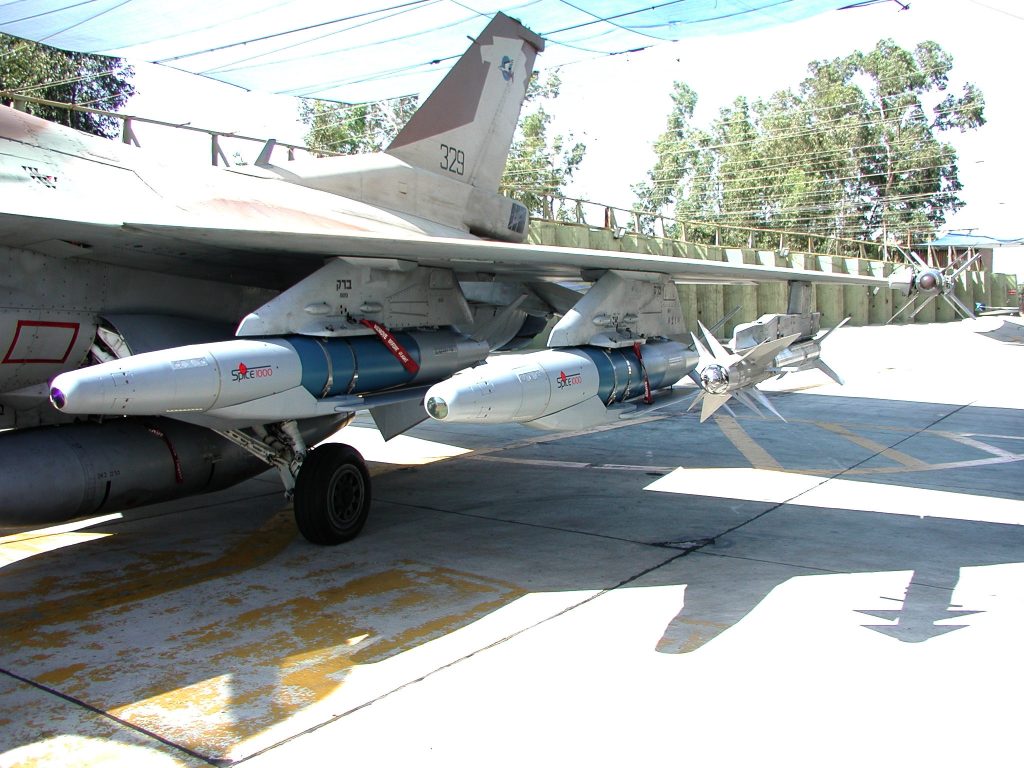Lockheed Teams With Airbus, ELTA, Rafael For Israeli Contracts & US Cash
Posted on

Lockheed is partnering with Airbus to offer the European firm’s A330 MRTT Multi-Role Tanker/Transport to the Israeli Air Force
TEL AVIV: US-based aerospace titan Lockheed Martin is teaming up with Israeli partners seeking US business and with Europeans seeking Israeli contracts. It’s part of a wider trend that has some Israeli observers fretting over the “Americanization” of their proud defense industry.
Israel’s current political crisis is compounding the problem, with the country headed into its second general election in five months after embattled Prime Minister Benjamin Netanyahu failed to form a coalition. But a long-term driver is a change the US made to its Foreign Military Financing (FMF) loans to Israel, requiring Tel Aviv to spend an ever-growing share of FMF funds — eventually, as of 2028, 100 percent — on US contractors.
With the Israeli defense budget long dependent on US subsidies, the rule change pushes Tel Aviv to favor US firms and US-led teams for contracts. That, Israel Aerospace Industries (IAI) says, is why the Israeli government won’t even give it a chance to compete for a new Israeli Air Force tanker. Even Israeli exports are affected by the Americanization trend, with Rafael teaming with Lockheed on its SPICE and Spike smart weapons — and IAI’s own ELTA subsidiary is joining forces with Lockheed on radar.

KC-46A makes first contact & refuels an F-16C in January 2016
Tanker Troubles
Mid-air refueling is crucial to extend the range of modern jet fighters — for example, if Israel decides to strike Iran, almost a thousand miles away. But the Israeli Air Force relies on aging tankers converted from the venerable Boeing 707, first built in 1959. One tanker was recently retired after 34 years in service. Old aircraft can only be refitted and upgraded so many times, and the IAF says it urgently needs six to eight new tankers and any further delays in buying replacements could result in “serious operational problems.”
So, on May 16, the Israeli defense ministry issued a formal Letter Of Request (LOR) to buy two of Boeing’s brand-new — and so far badly buggy — KC-46As, derived from the civilian 767. Israeli sources say Tel Aviv may ask the US Air Force to divert two aircraft from the production line to the IAF so the first tanker can arrive in Israel in 2022.
But not even two weeks after the request for KC-46As came out, on May 29th, Netanyahu failed to form a coalition and dissolved the Knesset, with new elections set for September. Amidst the turmoil, a joint delegation of Boeing’s biggest rivals, Lockheed Martin and Airbus, came to the Israeli government with their own tanker proposal. They offered the Airbus A-330 MMRT, to be assembled not in Europe but at an Airbus facility in Mobile, Alabama.
That could drive the tankers up to the 50 percent US-built threshold that would allow Israel to buy them with American FMF dollars. Lockheed and Airbus refused to answer questions about their joint offer. But the two companies did sign an agreement in December to explore tanker sales and services worldwide, a move widely seen as aimed at countries receiving American FMF funds.
Meanwhile, Israel’s own IAI has offered to convert used Boeing 767s — the same aircraft from which the KC-46A derives — to serve as new tankers for the Israeli Air Force. IAI claims that the Israeli defense ministry has not even given it the chance to compete for the tanker replacement.
Of course, it’s possible that the IAF is sick of old aircraft and has demanded brand-new 767 tankers straight from Boeing, not reconditioned ones via IAI. That said, it’s also significant that Tel Aviv can’t spend FMF funds on an IAI contract, but it can on a Lockheed-Airbus bid.

Spice-1000 smart bombs on an F-16 fighter
Bombs, Missiles, & Radars
While IAI looks for slingstones to take down the American Goliath, its Israeli archrival has decided to join the gentile giant. On May 16th — the same day Tel Aviv formally asked to buy Boeing tankers — Rafael and Lockheed Martin announced a partnership “to jointly develop, market, manufacture and support Rafael’s Smart, Precise Impact and Cost-Effective (SPICE™) guidance kits for U.S. sale.” The two companies had already joined forces to market Rafael’s Spike missiles to the US Army the year before.
(Yes, Rafael really offers two related products whose names are just one letter apart, a branding faux-pas of the first order).
SPICE-equipped smart bombs have been a crucial tool in Israeli airstrikes on Iranian-linked facilities in Syria, where there’s intense political imperative to limit collateral damage, especially to Russian advisors nearby. The Lebanese press has reported that SPICE fragments were found at strike sites.
So SPICE has been a quintessentially Israeli instrument. But an Israeli source said that the “Americanization” of the weapon will allow Lockheed to offer it to customers worldwide, especially operators of Lockheed’s F-16 Falcon and F-35 Joint Strike Fighter aircraft. (Israeli flies both).
Meanwhile, IAI’s own electronics subsidiary, ELTA, is partnering with Lockheed for the US Army’s Lower-Tier Air & Missile Defense Sensor radar competition. LTAMDS evolved from an effort to modernize the Patriot’s radar but is now intended to play a wider role in the Army’s future air and missile defense network. The Lockheed-ELTA offering is based on the Israeli company’s S-Band Multi-Missile Radar (MMR) used on one of the Israeli defense industry’s star systems, Iron Dome, which the US Army is buying as a stop-gap missile defense.
So what does Lockheed bring to this partnership? To start with, access to the US market and US dollars — which will be increasingly critical to Israeli arms makers as the clock counts down to 2028.
Subscribe to our newsletter
Promotions, new products and sales. Directly to your inbox.
